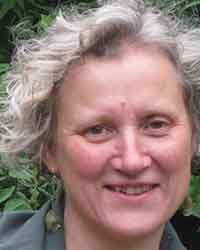 “Are you ashamed of yourself now?”
“Are you ashamed of yourself now?”
This was a patient’s response when her doctor wanted to start her on a statin. Every week I work with up to 30 General Practitioners in Training on their study day for general practice, and one of them shared the difficult conversation that had surrounded this comment.
I had suggested a challenge; to explore some truly radical ideas for improving health. One group had examined the proposition that the chronic disease “epidemic” is largely illusory, related to expanding disease definitions rather than actual experiences of ill health. ( The chronic disease explosion: artificial bang or empirical whimper? Kimberlyn McGrail , Ruth Lavergne , Steven Lewis BMJ 2016;352:i1312)
Having noticed that her CVD risk was 20%, this doctor had told his patient to take a statin, because that is what the guidelines say. This patient was not so sure. “Why are you trying to sell me this stuff” she asked. “What are the actual chances of me benefitting from this lifelong drug you want me to take?”
To his credit, the doctor recognised that he was not sure how to answer that question. He asked the patient if they could meet again when he had really understood the issue. At the follow up appointment they discussed the absolute numbers. If 1000 people like her take a statin for 10 years they could expect to reduce CVD risk by up to 30%. This would reduce the risk of a cardiovascular event from 200/1000 to maybe 140/1000. She said, “So, 70 people will get a benefit after 10 years, I make that about 7%, I am not sure I feel that is worth it for me .”
They discussed her attitudes to risk, medications and to health. She asked how certain he could be that she would be the one to benefit, knowing which of the 1000 on the statin would benefit was very uncertain. The patient decided to postpone drug taking, and manage her health her own way. That is when she made the comment about him being “ashamed” for “selling” a statin, rather than having a shared decision making discussion.
Her timely cynicism about being “sold” a statin helped this doctor move away from a comforting “pseudocertainty” (the guidelines say that many people will benefit), into a more realistic, but more painful, uncertainty, (will this individual patient get any benefit?). This highlighted the difference between managing a population, and taking care of individuals.
His colleagues remained unsure; this degree of uncertainty seemed uncomfortable. Firstly, it is intellectually threatening (we have just learned all these guidelines!). Secondly, and perhaps more upsetting, were they potentially at risk of being sued for “not giving a statin” or “going against the guidelines” or would they be criticised for “missing targets.” It is easy to see how overdiagnosis and overtreatment can be fuelled by a distinct discomfort with the idea that uncertainty is inevitable and irreducible in medical practice. Adhering to the “instructions” in guidelines can shield us from the real uncertainty of the outcomes for our individual patients. Its easy to follow an algorithm. Much harder to really stick to this approach:
Two seeds were sown in the training that day. Firstly, that patients can legitimately differ in their beliefs and attitudes to health and disease. Thus doctors should be supporting patients to make their own (legitimately different) choices, not imposing “instructions.” Secondly, fully understanding the absolute numbers makes it easier to explain to patents what their options really entail. Easier too to understand how expanding disease definitions may not have as many benefits as we hope. Even if we know about the effects of statins on some populations, we know very little about whether the person sitting in front of us will be the one who gets the benefit or the side effect.
To reduce overdiagnosis, doctors need to be aware of what the numbers really mean, learn the skills of holding uncertainty and undertake genuinely shared decision making.
Avril Danczak is a GP in Manchester and a Primary Care Medical Educator training General Practitioners on the Central and South Manchester Specialty Training Programme for General Practice. She is currently working on a patient safety project about diagnosis in General Practice.
Competing interests: I have co authored a book called Mapping Uncertainty in Medicine: what do you do when you don’t know what to do? by Avril Danczak Alison Lea and Geraldine Murphy. RCGP books.
